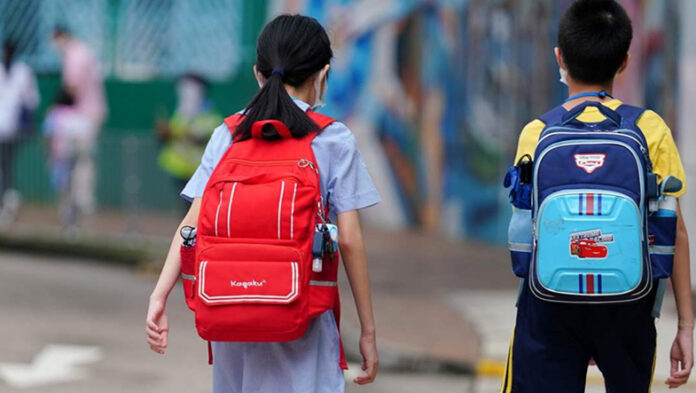Source: Amnesty International NZ
Responding to Hong Kong’s Education Bureau (EDB) announcing its new guidelines and curriculum in relation to safeguarding national security, Amnesty international Hong Kong’s Programme Manager Lam Cho Ming said:
“The new measures on school management and national security education, including the establishment of taskforces to monitor student behaviour and activities, would significantly curb freedom of expression on campus in Hong Kong.
“Banning expression of political opinion on campus is not a national security issue; it is a sweeping restriction and a blatant human rights violation. National security must not be used to deny students the right to express different political views.
“According to the guidelines provided by the Bureau, school governance authorities will be asked to prohibit students and teachers from participating in political activities and expressing political views on campus. Books and teaching materials containing information that may ‘endanger national security’ are also to be removed. However, the authorities’ overly broad and vague definition of national security may further silence opposition views on campus.
“International human rights law states that governments can only restrict rights in response to specific threats of the use of force that threaten a state’s existence or territorial integrity; peaceful political discussions and activities on campus are far from that.
“The Hong Kong government must not use national security as a pretext to unnecessarily censor freedom of expression on campus.”
Background:
The Education Bureau (EDB) issued circulars to schools on Thursday (4 February) to provide guidelines on school administration in relation to safeguarding national security, including details on the implementation of learning and teaching resources for national security education in the school curriculum.
The Bureau required school governance authorities to prevent and stop on-campus political activities, including displaying items advocating independence of Hong Kong, chanting political slogans and forming human chains. It said such activities may be “in breach of the Basic Law, the National Security Law and all laws applicable to Hong Kong”, for the purpose of enhancing students’ sense of national security, national identity and law-abiding awareness.
School governance authorities are also required to form specific taskforces overseeing areas of school administration, staff management and student discipline, in order to “create a peaceful and orderly school environment and atmosphere”.
According to international human rights law, expressions can only be punished on national security grounds if the authorities can demonstrate a clear and imminent threat of violence. In particular, if done peacefully, advocacy for a change in government or government policy, criticism or even insult to a state’s institutions or its symbols, or exposure of human rights violations, must not be penalized.
For further information or to arrange an interview contact:
mlee@amnesty.org.hk
kevin.darling@amnesty.org
press@amnesty.org



